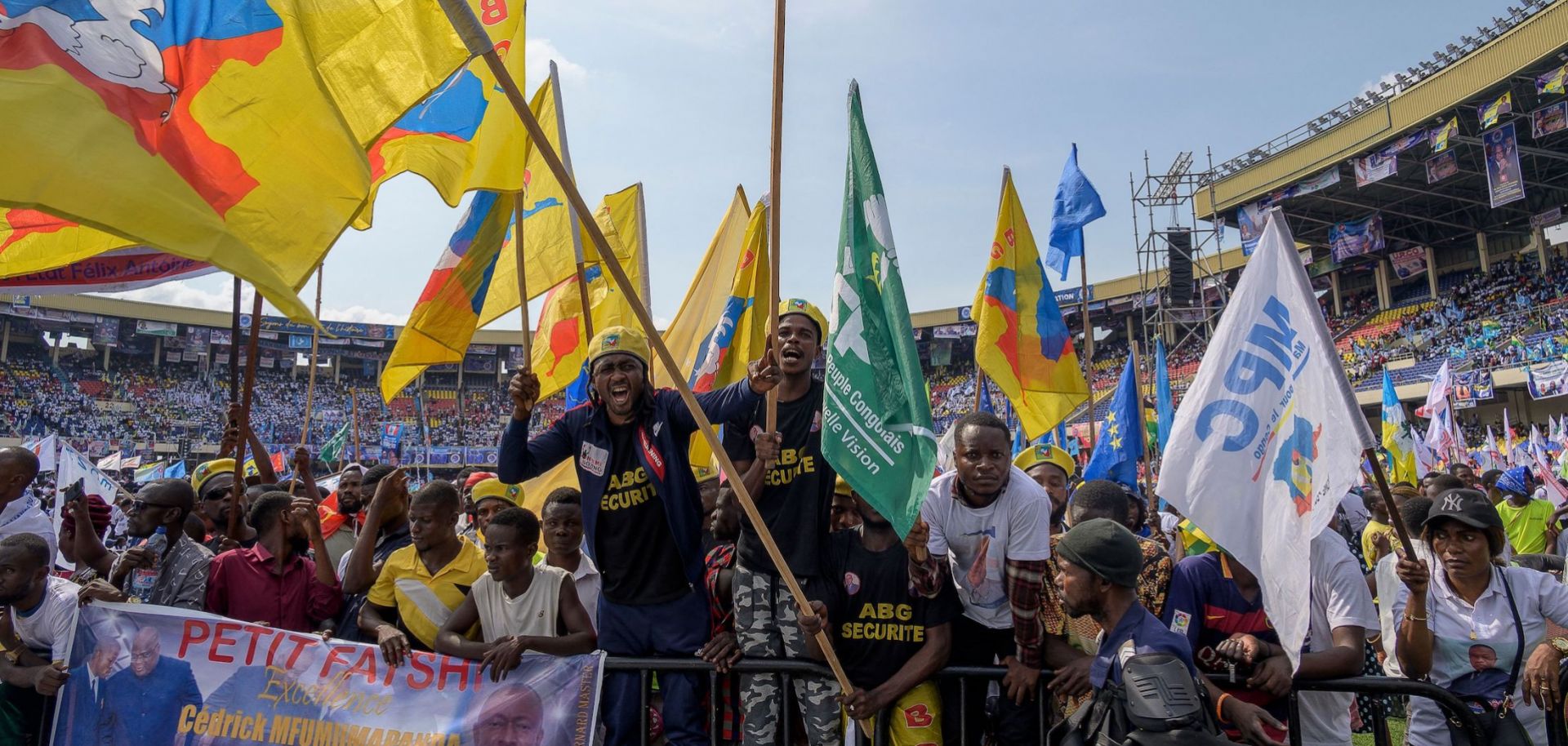Congolese President Felix Tshisekedi's control over state institutions will make an opposition victory during the December presidential election difficult, likely portending a violent and highly contested election that ushers in five more years of state capture, underdevelopment and fragile regional relations. The Democratic Republic of the Congo, Africa's fourth most populous country, will hold general elections on Dec. 20 during which Congolese will elect their next president, as well as their parliamentary, provincial and municipal representatives. Twenty-four candidates have registered to contest the presidency, although current President Felix Tshisekedi has a significant incumbent advantage due to his access to and control over state institutions. Among the opposition candidates, former oil executive Martin Fayulu and former Katanga province Governor Moise Katumbi are the frontrunners. Congolese elections follow a first-past-the-post plurality system, which means the candidate with the most votes wins the election....

